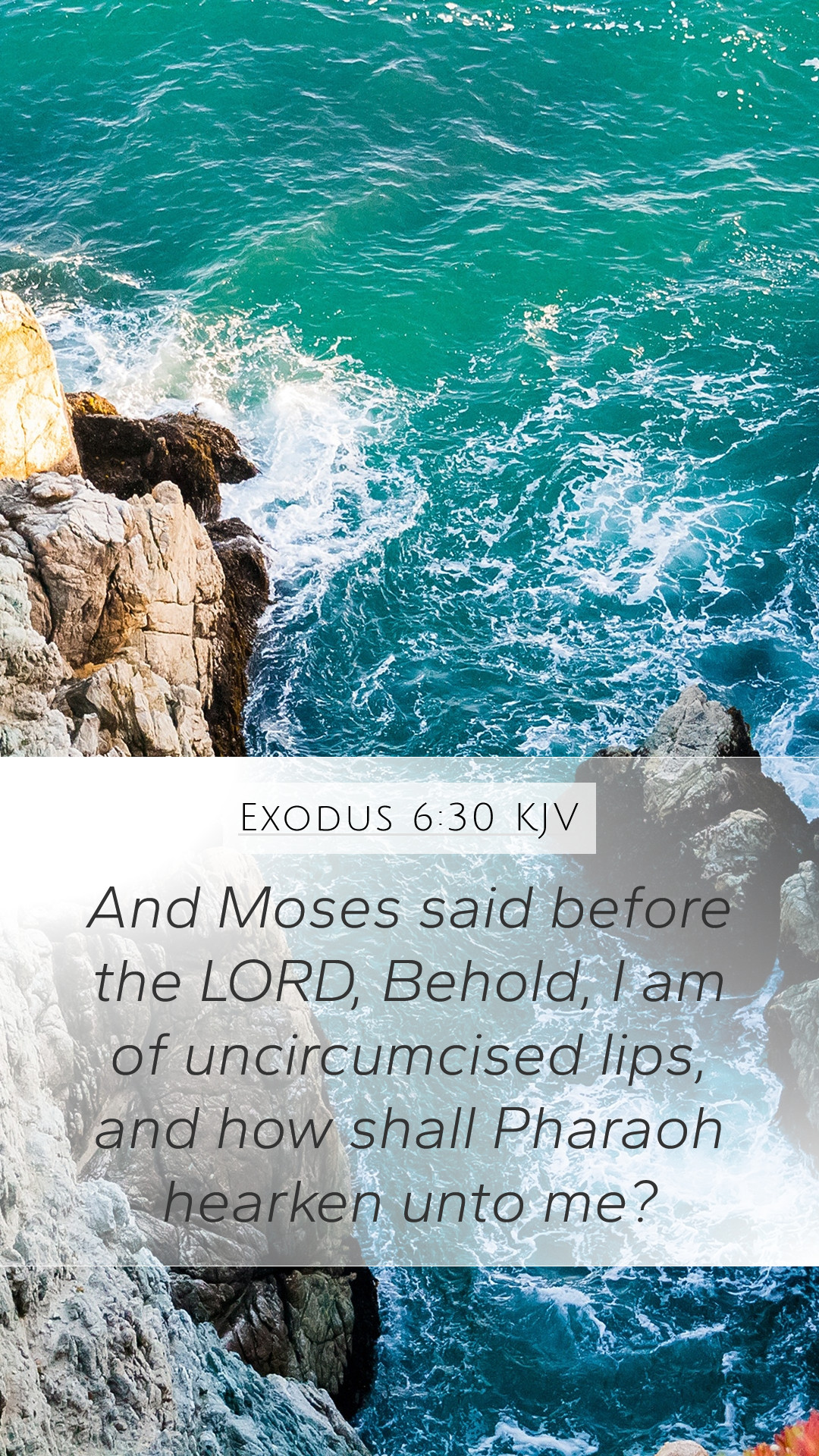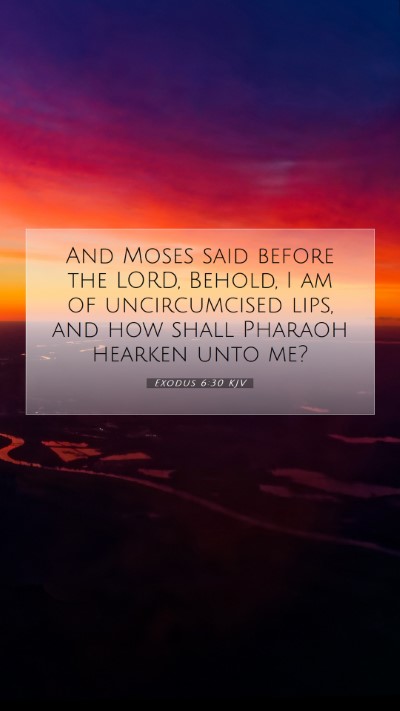Exodus 6:30: “But Moses said to the Lord, 'Behold, I am of uncircumcised lips, and how shall Pharaoh hearken unto me?'”
This verse is part of the narrative where God assures Moses of his mission to lead the Israelites out of Egypt. Here, Moses expresses his doubt about his ability to speak effectively before Pharaoh. This moment captures the theme of human inadequacy juxtaposed with divine empowerment.
Bible Verse Meaning and Interpretation
The meaning of Bible verses can often be complex, as they involve historical, cultural, and theological dimensions. In this context, Moses’ hesitation reflects common human feelings of inadequacy when faced with daunting tasks.
- Doubt and Insecurity: Moses is overwhelmed by his self-perceived shortcomings, which may resonate with individuals facing their own challenges.
- Divine Assurance: Despite Moses' concerns, God reassures him of His presence and purpose, emphasizing that divine calling often transcends personal limitations.
- Leadership Challenges: This verse highlights the struggles of leadership, where one may feel unqualified yet finds strength through faith and divine assistance.
Commentary Insights
Insights from various public domain commentaries provide a deeper biblical exegesis of this verse:
Matthew Henry’s Commentary
Matthew Henry emphasizes the importance of recognizing one's weaknesses in light of God's strength. He suggests that Moses’ lament about being of “uncircumcised lips” reflects a humility that can be crucial for effective leadership. This humility allows for greater reliance on God’s guidance.
Albert Barnes’ Notes on the Bible
Albert Barnes elaborates that “uncircumcised lips” symbolizes impurity and an inability to articulate the divine message effectively. He underscores that Moses' concern about his speech is not a mere excuse but reflects genuine apprehension about succeeding in his mission. Barnes highlights that God’s choice of someone perceived as inadequate is a recurring theme in Scripture.
Adam Clarke’s Commentary
Adam Clarke notes that the phrase indicates an inability to communicate clearly or effectively. Clarke asserts that Moses’ fear of Pharaoh’s rejection is a relatable human experience, emphasizing the need for spiritual preparation in leadership roles. Clarke suggests that God equips His chosen servants with the necessary tools to carry out their missions, despite personal fears.
Historical Context
Understanding the historical context of Exodus 6:30 is crucial for a complete interpretation:
- The Israelites were enslaved in Egypt, and Moses was called to deliver them. His initial self-doubt highlights the tension between divine command and human capability.
- This verse occurs in the larger narrative of God’s covenant with Israel, reinforcing the notion of divine promise despite human frailty.
- Moses had previously expressed reluctance to serve as a leader (Exodus 3:11), indicating a consistent theme of self-doubt throughout his calling.
Application of the Verse
This verse can serve as a source of encouragement for those feeling unqualified for their responsibilities. The assurance that God equips those He calls can be a profound comfort.
- Believers are encouraged: Recognize that feelings of inadequacy can coexist with a strong divine calling.
- Encouragement for Leadership: Whether in a church setting or community, leaders may draw strength from this passage that even great leaders had doubts.
- Faith in Action: Taking steps forward in faith, regardless of self-doubt, is a key lesson derived from Moses’ experience.
Related Bible Cross References
- Exodus 3:11-12: Moses questions his worthiness to lead.
- Jeremiah 1:6: Another prophet expresses doubts about his abilities.
- 1 Corinthians 1:27-29: God uses the foolish things of the world to shame the wise.
In summary, Exodus 6:30 illustrates themes of doubt, divine empowerment, and leadership that resonate throughout the Bible. By understanding the struggles of Moses, believers can find hope and strength in their own challenges, affirming that God’s purpose often prevails through human weakness.


